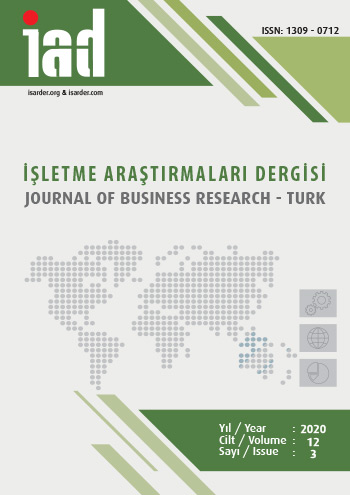Örgüt Kültürünün Motivasyon Üzerindeki Etkisinin Doğrusal ve Bulanık Mantık Yöntemleriyle Değerlendirilmesi
Evaluation of the Effect of Organizational Culture on Motivation with Linear and Fuzzy Logic Methods
Author(s): Ela Özkan Canbolat, Esra Erenler Tekmen, Aydın BerahaSubject(s): Business Economy / Management, Organizational Psychology, Human Resources in Economy
Published by: İşletme Araştırmaları Dergisi
Keywords: Organizational culture; Motivation Fuzzy-set qualitative; Comparative analysis (fsQCA);
Summary/Abstract: Purpose – The aim of this study is to reveal whether the organizational culture has an effect on the motivation of the employees. Design/methodology/approach – In the study, while examining the effect of organizational culture dimensions on the motivation of the employees, a configuration perspective was adopted, and the research data were collected from 392 people working in a public institution in Çankırı. Multiple regression analysis was conducted to test the effect of sub-dimensions of organizational culture on employee motivation. In addition, the relationship between variables was evaluated by fuzzy-set qualitative comparative analysis (fsQCA) and the results of the two methods were compared. Findings – As a result of the analysis, it has been determined that linear modeling and fuzzy-set methods produce different results. Multiple regression analysis performed by linear modeling showed that involvement and vision culture dimensions had a positive effect on motivation. In the analysis made with fuzzy logic method, it was found that when the culture of involvement and adaptability occur together, the motivation perception also occurs. Additionally, these analyzes revealed that a culture of adaptability and vision should be created together as another suggestion to increase motivation. The fuzzy-set analysis proposes to the researchers to create a culture of involvement and vision as the third way to motivate the employees, and not to create a culture of consistency. Discussion – There are not many studies in the literature analyzing culture and motivation with fsQCA method. In this context, it can be said that the field is open to the contribution of the studies to be carried out with the qualitative comparative analysis technique. It is considered that future researches can provide new information for practitioners with the fuzzy-set analysis about which dimensions of organizational culture can be used in increasing employee motivation. Also in future studies, the comparison of public and private sector results or whether the set of cultural dimensions that increase motivation according to the industry branch has changed can be studied.
Journal: İşletme Araştırmaları Dergisi
- Issue Year: 12/2020
- Issue No: 3
- Page Range: 2246-2259
- Page Count: 14
- Language: Turkish

